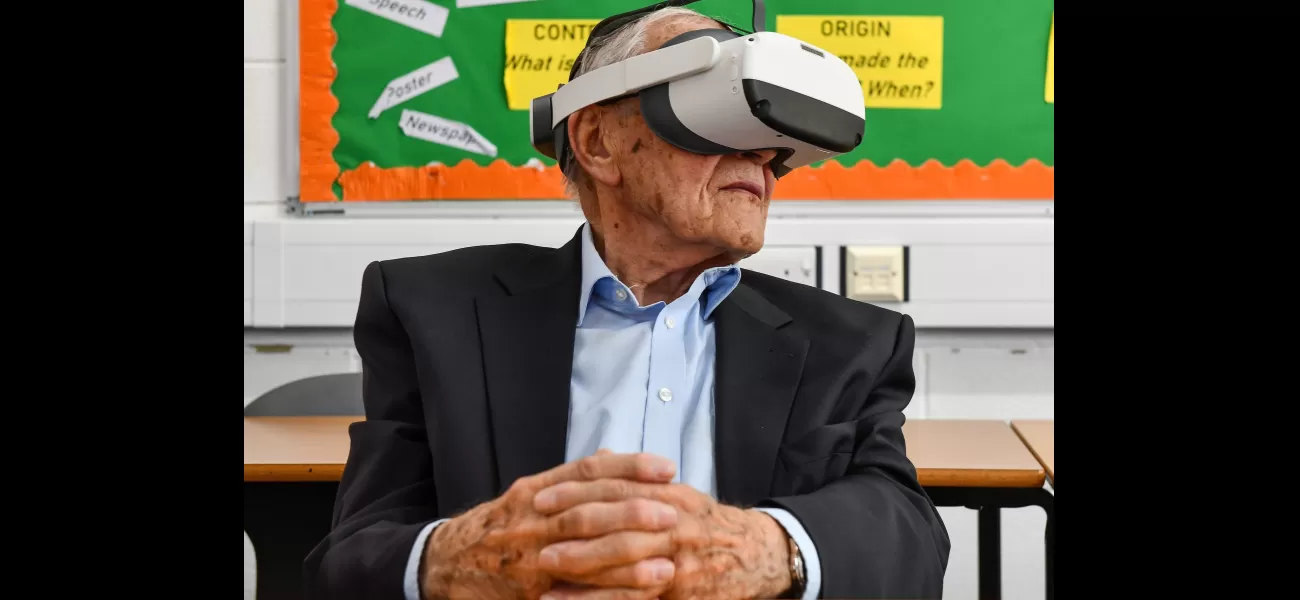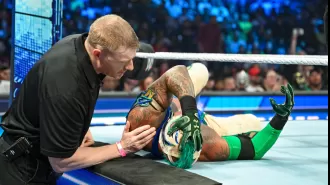Experience a Holocaust survivor's powerful recollections through virtual reality.
He lived, while his sibling perished.
June 19th 2024.

Manfred Goldberg, a Holocaust survivor, recently had the opportunity to try out a new technology that aims to preserve the memories of those who suffered in the camps. At the age of 94, Manfred recalls his experience as a young boy who was sent to the Stutthof concentration camp in Poland, where his brother tragically lost his life.
Manfred reflects on the day his brother was taken from the camp, leaving him and three other children behind. They would meet every evening, but one night, the children were nowhere to be found. To this day, Manfred has not been able to find any trace of his brother and believes he was murdered. He was just 13 years old at the time, while his brother was only nine.
Despite the horrors he faced, Manfred shares his story with school children to educate them about the Holocaust. However, there has been a rise in Holocaust denial, even among young adults. To combat this and preserve the memories of survivors, the Holocaust Educational Trust has turned to modern technology.
Their new program, Testimony 360, combines artificial intelligence and virtual reality to create life-like conversations between students and survivors. This technology is meant to "immortalize" survivors and their stories, even after they are no longer alive. With the use of speech-to-text recognition AI and a nine-camera rig, virtual 3D versions of survivors can now answer over 1,000 questions from students.
The program also allows students to virtually visit key sites linked to survivor testimonies, such as their hometowns and the concentration camps they were imprisoned in. The goal is to ensure that future generations can have memorable experiences learning about the Holocaust.
For Manfred, this technology means that his words and story will live on even after he is gone. He has been sharing his testimony with students for over 20 years and has seen the impact it has on them. He believes that hearing directly from a survivor is a powerful way to learn about the Holocaust and hopes that this technology will continue to educate and inspire students.
Karen Pollock, the chief executive of the Holocaust Educational Trust, emphasizes the importance of teaching young people about the Holocaust, especially in the face of misinformation and conspiracy theories spread on social media. She believes that hearing from a real survivor and being able to see the sites they talk about will have a lasting impact on students.
The Testimony 360 program was officially launched at a school in London and will soon be rolled out to more schools. Manfred is grateful to have his story and legacy preserved in this way, saying that he never could have imagined it during the dark days of the Holocaust. He hopes that his virtual self will be able to reach and educate millions of students in the future.
Manfred reflects on the day his brother was taken from the camp, leaving him and three other children behind. They would meet every evening, but one night, the children were nowhere to be found. To this day, Manfred has not been able to find any trace of his brother and believes he was murdered. He was just 13 years old at the time, while his brother was only nine.
Despite the horrors he faced, Manfred shares his story with school children to educate them about the Holocaust. However, there has been a rise in Holocaust denial, even among young adults. To combat this and preserve the memories of survivors, the Holocaust Educational Trust has turned to modern technology.
Their new program, Testimony 360, combines artificial intelligence and virtual reality to create life-like conversations between students and survivors. This technology is meant to "immortalize" survivors and their stories, even after they are no longer alive. With the use of speech-to-text recognition AI and a nine-camera rig, virtual 3D versions of survivors can now answer over 1,000 questions from students.
The program also allows students to virtually visit key sites linked to survivor testimonies, such as their hometowns and the concentration camps they were imprisoned in. The goal is to ensure that future generations can have memorable experiences learning about the Holocaust.
For Manfred, this technology means that his words and story will live on even after he is gone. He has been sharing his testimony with students for over 20 years and has seen the impact it has on them. He believes that hearing directly from a survivor is a powerful way to learn about the Holocaust and hopes that this technology will continue to educate and inspire students.
Karen Pollock, the chief executive of the Holocaust Educational Trust, emphasizes the importance of teaching young people about the Holocaust, especially in the face of misinformation and conspiracy theories spread on social media. She believes that hearing from a real survivor and being able to see the sites they talk about will have a lasting impact on students.
The Testimony 360 program was officially launched at a school in London and will soon be rolled out to more schools. Manfred is grateful to have his story and legacy preserved in this way, saying that he never could have imagined it during the dark days of the Holocaust. He hopes that his virtual self will be able to reach and educate millions of students in the future.
[This article has been trending online recently and has been generated with AI. Your feed is customized.]
[Generative AI is experimental.]
0
0
Submit Comment





